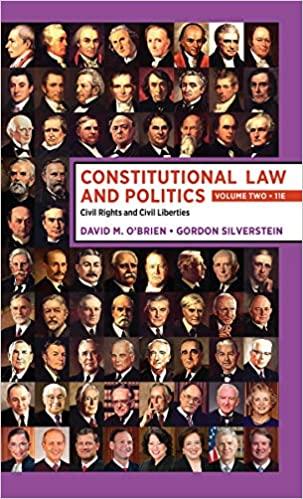Question
1. Define privilege against self-incrimination, and list three situations in which a suspect cannot invoke it. 2. List three types of incriminating evidence obtained from
1. Define privilege against self-incrimination, and list three situations in which a suspect cannot invoke it.
2. List three types of incriminating evidence obtained from a suspect that are not considered testimonial.
3. State the Miranda warnings, and explain when they are required.
4. What is the standard for a valid Miranda waiver? Explain how a suspect invokes the Miranda rights.
5. Is it necessary to give a new set of Miranda warnings if the suspect has already waived his or her rights? Explain.
6. If the suspect invoked the right to remain silent, may officers attempt to interrogate him or her at a later time? Explain.
7. If the suspect asked for an attorney, may officers attempt to question him or her at a later time? Explain.
8. Can confessions be used in court if the suspect was illegally arrested prior to the interrogation? Explain.
9. Can a statement that was obtained in violation of Miranda be used in court for impeachment? Explain.
10. What procedures are required prior to interrogating a suspect who has been arraigned and released from custody? Explain.
Step by Step Solution
There are 3 Steps involved in it
Step: 1

Get Instant Access to Expert-Tailored Solutions
See step-by-step solutions with expert insights and AI powered tools for academic success
Step: 2

Step: 3

Ace Your Homework with AI
Get the answers you need in no time with our AI-driven, step-by-step assistance
Get Started


